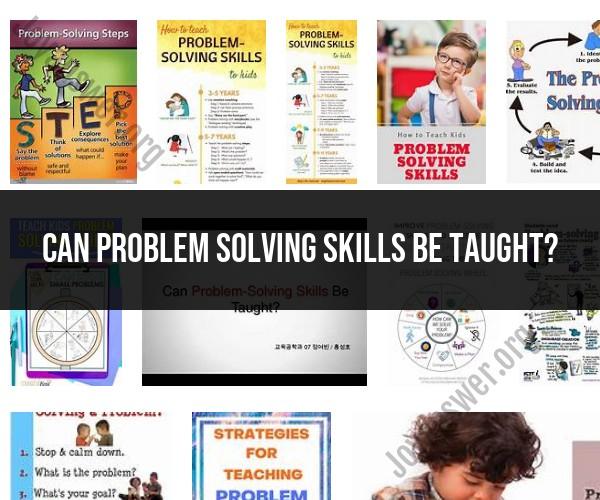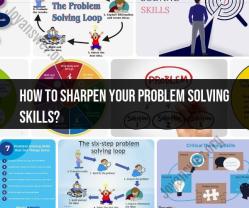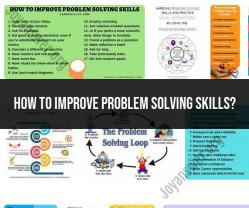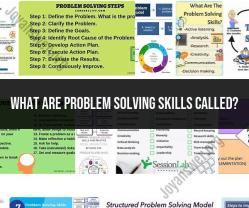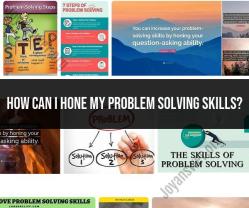Can problem solving skills be taught?
Yes, problem-solving skills can be taught and developed. While some individuals may have a natural aptitude for problem solving, most people can significantly improve their problem-solving abilities through education, training, and practice. Here are strategies for learning and teaching problem-solving skills:
Structured Learning Programs:
- Educational institutions and training programs often include problem-solving as a core component of the curriculum. These programs provide structured learning experiences to enhance problem-solving skills.
Problem-Based Learning (PBL):
- PBL is an educational approach that focuses on presenting students with real-world problems to solve. It encourages critical thinking and the application of knowledge to practical situations.
Critical Thinking Courses:
- Many educational institutions offer courses specifically designed to teach critical thinking and problem-solving skills. These courses provide a framework for systematic problem solving.
Workshops and Seminars:
- Attend workshops, seminars, or training sessions that focus on problem-solving techniques. These events often provide hands-on practice and guidance from experts.
Online Courses and MOOCs:
- Online platforms offer a wide range of courses related to problem solving, critical thinking, and decision making. Many of these courses are self-paced and accessible to learners worldwide.
Problem-Solving Tools and Software:
- Utilize software and tools designed to facilitate problem solving, such as mind mapping software, decision tree generators, or project management software.
Mentorship and Coaching:
- Seek mentorship from experienced problem solvers in your field. Learning from someone with expertise can accelerate your skill development.
Problem-Solving Exercises:
- Engage in problem-solving exercises and activities. These can include puzzles, brainteasers, and logic games that challenge your thinking.
Case Studies:
- Analyze real-world case studies that highlight successful problem-solving approaches. Discuss and learn from the strategies employed by others.
Role-Playing and Simulations:
- Participate in role-playing scenarios or simulations that mimic real-life problem-solving situations. This allows you to practice decision making in a controlled environment.
Team Projects:
- Collaborate on team projects that require problem solving. Working with others can expose you to different problem-solving styles and strategies.
Continuous Practice:
- Regularly practice problem solving. The more you engage in problem-solving activities, the more skilled you become.
Feedback and Assessment:
- Seek feedback on your problem-solving efforts. Assess your performance and identify areas for improvement.
Self-Study:
- Take the initiative to learn problem-solving skills independently. Utilize books, articles, and online resources dedicated to problem solving.
Cross-Disciplinary Learning:
- Explore problem-solving approaches from different fields or industries. Solutions from one domain may inspire innovative solutions in another.
Professional Development:
- Consider professional development opportunities that emphasize problem solving. Attend conferences, webinars, or industry-specific training.
It's important to note that becoming a proficient problem solver often requires ongoing practice and refinement of skills. Whether you are a student, a professional, or an individual seeking personal growth, investing in the development of your problem-solving skills can lead to more effective decision making and increased confidence in addressing challenges.
